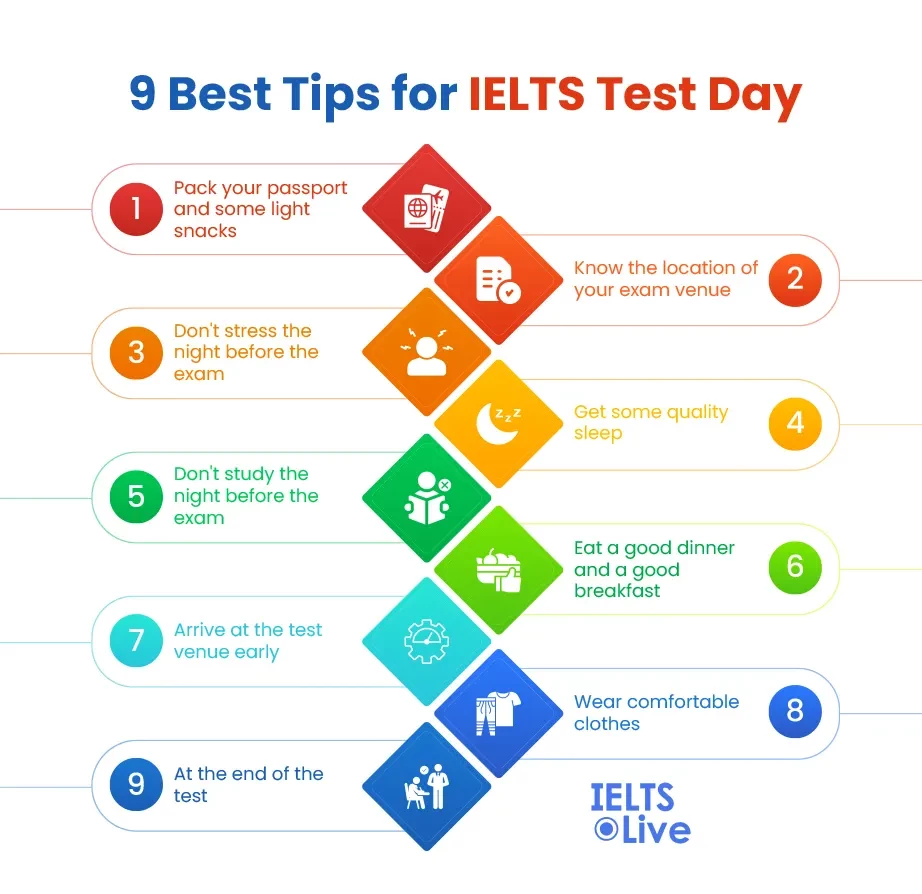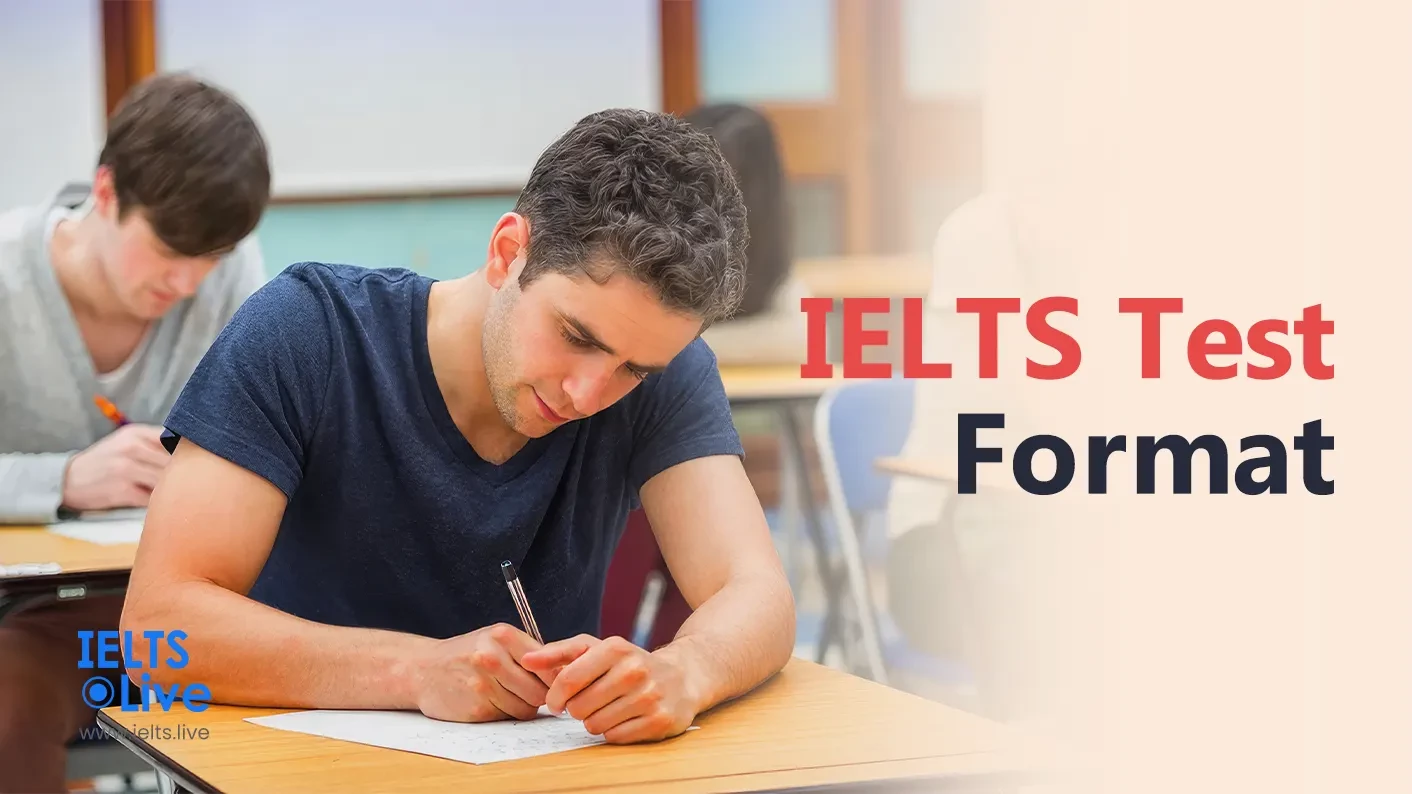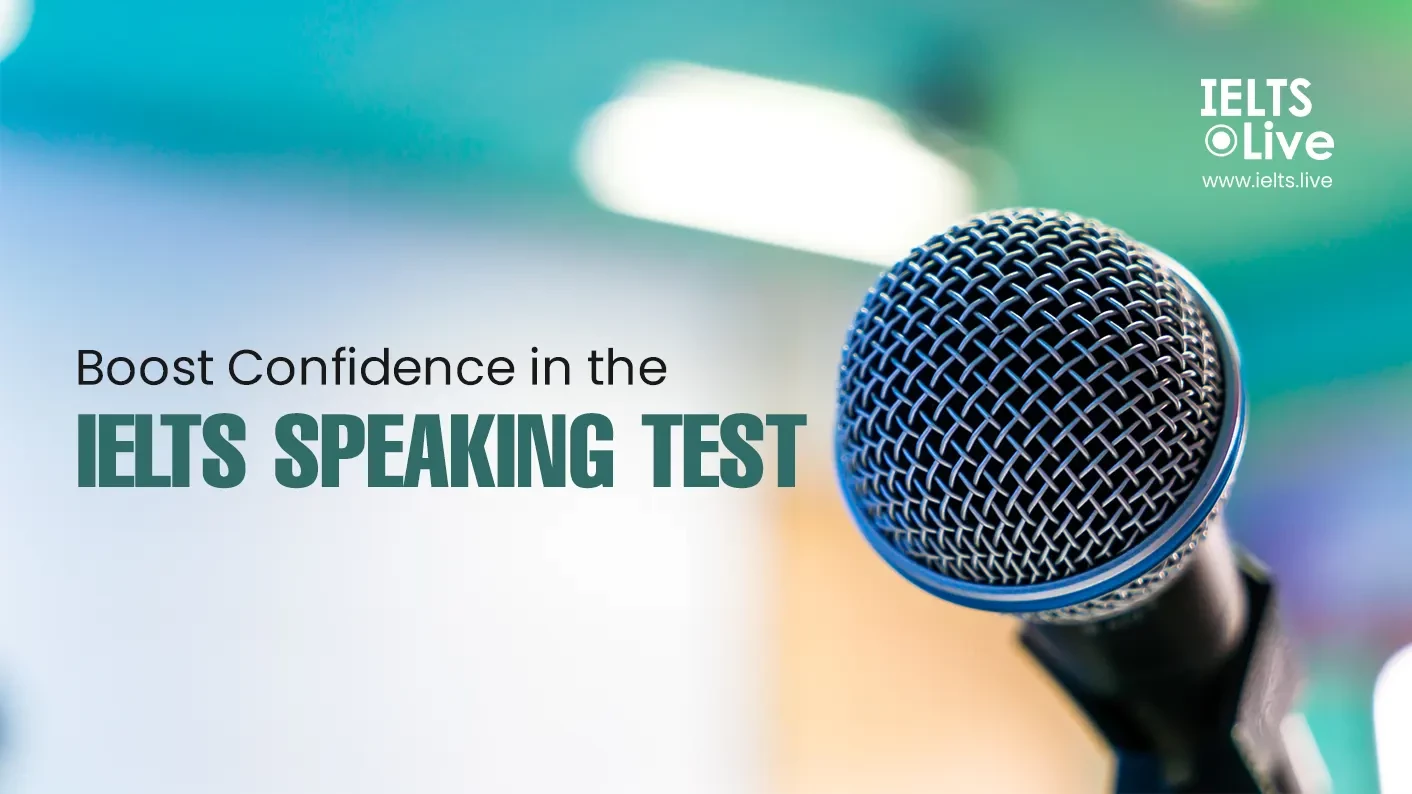
Remember your exam day is more important than all the other days you spent preparing for the test. Something a lot of us don't realise is that our performance on the IELTS test day is what matters the most.
You'll be evaluated based on your performance during those few hours. It makes no difference if your abilities are superior to those demonstrated on your exam paper.
The most important day is the exam day, and in order to perform well on this day, you must be in good health and mind.
I had made the mistake of not getting enough sleep the night before my exam, and as a result, I was sleep deprived and nauseous. My ill health made it difficult for me to concentrate.
Fortunately, despite feeling ill, I received a band score of 8.5. However, this experience taught me the value of getting enough rest the night before a test.
Now, let's go over what you need to remember in order to perform well on test day.
You may also like: The Secret to Acing the IELTS Test Format - Revealed!
Pack your passport and some light snacks
Your passport functions as your identification for the IELTS exam. Without your passport, you wouldn't be able to sit for the exam. It is a good idea to pack your bag the night before. That way you wouldn't have to go looking for it on exam day.
It can be frustrating to have to pack your bag in the morning as well. It is also a good idea to carry some snacks and a bottle of water with you. If you have the speaking test on the same day as your other modules, there will be a break in between.
You may have to wait for a couple of hours as well. Keep some snacks so you don't get hungry since hunger might make you do badly in the exam. It may cause some health issues as well such as low blood sugar or low blood pressure.
If you have your speaking test on a different day, it is still advisable to carry some emergency snacks. Make sure to double-check what you packed before leaving the house.
Know the location of your exam venue
You should know where you're supposed to go and how you can go there. It's good to have some general knowledge about the area as well. It's a good idea to search on the Internet and locate your exam venue the night before. Also, figure out how you'll get there.
Don't stress the night before the exam
The last thing you'd want to do is stress the night before the exam. A calm and relaxed mind is crucial on exam day in order to give your best performance.
On the night before an exam, give yourself a break from worries because worries might make you nervous and do badly in the exam. You can try talking to friends and spending time with family if you’re having trouble handling your stress.
Get some quality sleep
The value of getting enough sleep the night before an exam cannot be overstated. A restful night's sleep can improve your brain function, making you more quick and effective. Contrarily, not getting enough sleep can lead to health problems like indigestion, headaches, etc.
I had made the mistake of getting too little sleep, and as a result, felt sick on the day of the exam, which also affected my concentration. Sleep is therefore necessary for maintaining mental clarity.
Overall, getting enough sleep before an exam is critical for improving brain function and avoiding potential health issues that could impair performance.
Don't study the night before the exam
Now, while this may seem illogical, I think this is excellent advice. And the reason is that the IELTS exam measures your skill level. It is best to avoid studying after sundown because you cannot develop or improve your skills in a short period of time.
The most you can do is review the writing formats and vocabulary that will be tested. Even if you do decide to study, give yourself no more than an hour to finish everything.

Eat a good dinner and a good breakfast
For both your dinner and breakfast, you should eat something healthy that is easily digestible. Avoid food that is rich in fat and oil.
A good dinner along with a good sleep will make you feel refreshed in the morning. Try waking up early on the day of the exam with enough time in hand so that you don't have to rush to get ready and eat your breakfast.
Eat something healthy along with some brain food such as bananas or nuts or a boiled egg. Note that you’ll have to keep all your belongings in a locker outside of the exam room including your food or drinks with the exception of water that you’ll be carrying in a transparent bottle.
Arrive at the test venue early
It is better to arrive a bit early at the test venue than on time. Start for the test venue early as you may encounter traffic or some other issue on the way.
Make sure you read the terms and conditions at the time of the registration process. This information can be found in the Test Takers Information part of your application form.
Wear comfortable clothes
IELTS scores are not in any way influenced by how you look. It is therefore advised that you dress in a way that gives you comfort and a sense of confidence.
Although the test locations typically have air conditioning, it would be a good idea to bring some warm clothing just in case, as being too cold might make it difficult for you to concentrate.
You don't need to bring your watch because you won't be able to bring it into the examination room. An electronic countdown will be displayed which will help you keep track of your time.
At the end of the test
After you’re done with your exam, remain seated until you’re instructed to leave the room. Don’t worry too much about the results and take mental preparation for the speaking section. The speaking test might take place earlier than your other tests as well.
The most crucial factor is to give your best effort on test day by being in good physical and mental health. The night before the exam, make sure you have your passport, some snacks, and the location of the exam site.
Avoid worrying the night before the exam, get enough rest, skip studying, and eat a nutritious dinner and breakfast. Prepare a healthy breakfast, leave early, and dress comfortably. That's really how simple it is.
Maintain your poise and focus. Don't rush through the questions, and you'll surely do your best. Good luck with your exam! For further assistance keep an eye on ielts.live along with our Facebook page and Youtube channel.








0 COMMENTS